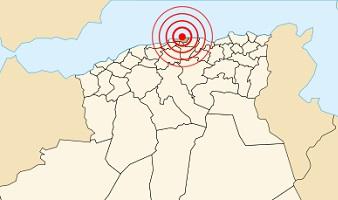Using AI to control energy for indoor agriculture
30 September 2024
Published online 28 May 2010

Algeria announced plans to construct an international research university for seismology with funding from the United Nations Educational, Scientific and Cultural Organization (UNESCO). Construction will start this autumn, with the university opening its doors in 2012. The university will collaborate with the International Institute of Seismology and Earthquake Engineering (IISEE) in Tokyo, Japan.
"Algeria is a country with a risk of earthquake, so I think it's a good idea," said Takashi Imamura, who is the programme specialist in charge of the UNESCO International Platform for Reducing Earthquake Disaster.
The university will study earthquakes and tsunamis, with a focus on North Africa, which is a region poor in seismology research. "This university will hopefully cover the lack of research in the region," said Djillali Benouar, who is a seismologist at the University of Science and Technology Houari Boumediene (USTHB) in Algeria.
"This will be a huge opportunity for students in the region who are studying seismology," added Mehdi Zare, who is the head of the National Centre for Earthquake Prediction at the International Institute of Earthquake Engineering and Seismology (IIEES) in Iran.
An active seismic belt runs through Algeria, Tunisia and Morocco in North Africa, making the area vulnerable to geologic hazards, which can lead to natural disasters.
Beshir Salamy, who is the programme manager at the Department of Scientific Research and Technological Development in Algeria, said they are studying the specifications of the project. "We are currently putting together a list of the professors who will conduct research in the university."
However, the department is having trouble convincing Algerian researchers abroad to return home to work in the new institute. The education classification system used in the West is different from that in Algeria, which is causing complications. "The same problem also faces other researchers from different nationalities who will join the university," explained Salamy. They are currently working on solving this problem to attract these researchers back home.
Nada Boshra, who is a Sudanese seismologist, stressed that international collaboration with centres and researchers worldwide will be pivotal to the success of the university.
Benouar also suggested that the university should have sections dedicated to earthquake-architecture research, to make it more complete.
doi:10.1038/nmiddleeast.2010.155
Stay connected: